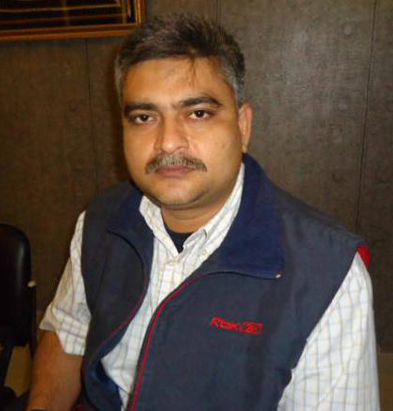
Kanpur-based Syed Wasif Haider, who was arrested in August 2001 on 12 charges, has filed writs against Dainik Jagran, Hindustan Dainik and Amar Ujala, for “running his media trial even after his acquittal” and frequently referring him as an “atankhi.”
Mr. Haider was part of the recent delegation led by Communist Party of India (Marxist) general secretary Prakash Karat that met President Pranab Mukherjee and handed over to him a memorandum outlining how Muslim youth were being targeted and persecuted in terrorism-related cases.
Mr. Haider was acquitted on August 12, 2009 after serving a sentence over charges of rioting, attacking a Provincial Armed Constabulary vehicle, murdering an additional district magistrate and involvement in the Swarup Nagar pressure-cooker explosion case.
According to Mr. Haider: “A December 9, 2010 report in Dainik Jagran [referred to me] as “atankhi Wasif,” in a story speculating the Kanpur connection of the 2010 Varanasi bomb attack. The report said the police were closely monitoring the normal lives of terrorists who had been released from jail, their phone records and sources of income. A similar report was published two days later.
“I was not booked under TADA or POTA, yet, even while I was under trial I was labelled an “atankhi.” Also, the special cell's charges of sedition were dismissed by the court even before they could be filed.
“So why is this media trial going on even when the court has acquitted me in all the cases?”
Mr. Haider's fight against the “irresponsible and prejudiced” media reporting during and after his trial has affected not only his economic standing but also his reputation. He and his family are now supported by his father and sister.
“After my release, I spent a good amount of time convincing people of my innocence. And, to some extent, people started trusting me again.
But with these reports, they have grown suspicious again and I have become a social outcaste. I have no job. Nobody wants to have any connection with me. My young daughter also gets taunted at school.”
Mr. Haider said the newspapers, to whom he sent legal notices in April regarding their reportage, were yet to respond. In September, he alleges, Amar Ujala published a story in which his father was referred to as a “Hizbul Mujahideen terrorist.”
“My father has won many awards in translating text. He is also a Sahitya Akademi award winner,” Mr. Haider said.
Mr. Haider's defamation case against Dainik Jagran is pending in the Allahabad High Court. The paper's Editor Sanjay Gupta said he was not aware of any such case or notice. The paper's legal advisor, B.K. Mishra, also said the management had received no such notice and it was the paper's prerogative whether or not to respond to any such notice.
The HR department of Amar Ujala said it had received a notice from Mr. Haider but it could not confirm the content of the news reports as alleged by Mr. Haider.
On Tuesday, Mr. Haider filed a petition against Amar Ujala in the Supreme Court under Article 32.
Cases against Hindustan Dainik and Amar Ujala are pending with the Special Judicial Magistrate.
Hindustan Dainik was not available for comment.
Rihai Manch, a civil society group working for the release of innocent persons arrested in terror cases, said compensation and rehabilitation must be ensured to such innocent undertrials and proper enquiry called against police officers who wrongfully implicated such persons.





Comments
Add new comment